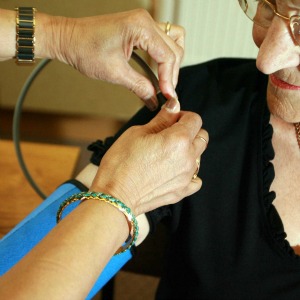NHS Health Checks no more effective than usual practice, study finds

GP practices offering NHS Health Checks did not identify any more patients with diabetes or cardiovascular diseases than they would have if they just continued with their usual practice, a study in the Midlands has found.
The study from Warwickshire, published in the British Journal of General Practice, found there was no statistical difference in the change in prevalence of coronary heart disease, diabetes, hypertension, chronic kidney disease or atrial fibrillation between the practices that offered NHS Health Checks and those that did not during a three-year period.
GP experts said this study was further evidence that the scheme, which was first instituted in 2009 and aims to offer five-yearly checks of blood pressure, cholesterol, weight and lifestyle to all people aged 40 to 74 years, was ‘not working’ and the editor of the BJGP said it cast further doubt on the future of the scheme.
This is the latest in a series of setbacks for the scheme, following criticism from GPs, including former RCGP chair Professor Clare Gerada and other leading clinicians, who called for the programme to be scrapped, while even Public Health England advisors have questioned the value of the programme in its current form.
The Warwickshire study looked at the QOF disease registers of 38 GP practices offering NHS Health Checks and 41 practices that did not offer them between June 2010 and March 2013.
Out of a total of 16,669 NHS Health Checks, 1,142 previously undiagnosed cases of disease were picked up over the study period – equivalent to a new case per 6.85% of Health Checks done.
Related stories
NHS Health Checks ‘costs twice as much’ as opportunistic testing
The prevalence of diabetes fell by 0.40%, from 5.9% to 5.5% in the practices that carried out NHS Health Checks and by 0.34%, from 4.56% to 4.19%, in the other group.
Similarly, the prevalence of coronary heart disease went down 0.1% in both groups, while that of hypertension went up by 0.46% in the NHS Health Checks group and 0.30% in the other group.
The study authors, led by Dr Michael Caley, a specialist registrar in public health and general practice from Public Health Warwickshire, concluded: ‘The implication of this result is that provision of NHS Health Checks in GP practices may not be different from usual care at increasing the reported prevalence of the five conditions examined, despite the apparent detection of disease in 6.85% of all Health Checks delivered.’
They add: ‘CCGs and public health departments may not be able to rely on NHS Health Checks to reliably case find and increase prevalence of certain conditions over usual care.’
The programme was rebooted last year by Public Health England in a bid to achieve the Government’s goal of reaching 15 million eligible people by 2018.
But studies have shown poor uptake of the checks and that they fail to pick up those patients most at need, potentially worsening health inequalities. One recent study showed NHS Health Checks cost twice as much as opportunistic testing.
Professor Roger Jones, editor of the British Journal of General Practice, said the study ‘casts further doubt’ on the programme.
Professor Jones said the researchers had found no advantage of the Health Checks, ‘suggesting that they may provide little benefit over case-finding as part of usual care, and may not represent good value for money for commissioners of care’.
Dr Margaret McCartney, RCGP council member and a GP in Glasgow, said the study was further evidence the programme ‘is not working’ and is being pushed through for political reasons.
Dr McCartney told Pulse: ‘It’s very sad that the NHS Health Checks scheme is continuing despite accumulating evidence from elsewhere that it’s not working.’
‘The massive problem with [NHS Health Checks] is a huge amount of money has been spent on them when there’s not the evidence to support them. If someone had said right at the beginning, let’s do a randomised controlled trial, we’d be pretty much sorted out by now and know what path to take based on evidence.’
‘And yet we’re still dithering around, with more and more evidence accumulating they don’t work, and it is mandated – it is illegal not to do them. We know health inequalities continue to rob people of years of life they could have had, and this is the best politicians can do – and I just don’t think it’s good enough.’

Click here to find out more about our campaign
Pulse July survey
Take our July 2025 survey to potentially win £1.000 worth of tokens

Visit Pulse Reference for details on 140 symptoms, including easily searchable symptoms and categories, offering you a free platform to check symptoms and receive potential diagnoses during consultations.










